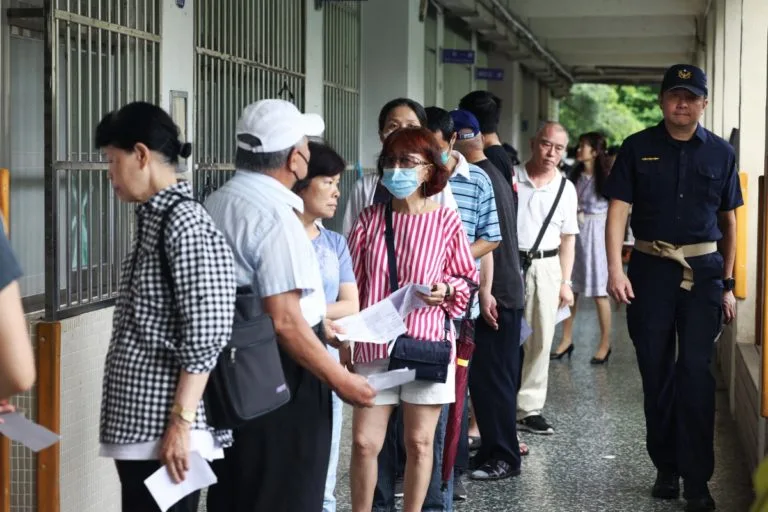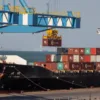Taiwanese voters flocked to schools, temples, and community centers on Saturday for a pivotal recall election that could shift control of parliament to President Lai Ching-te’s Democratic Progressive Party (DPP).
The DPP, through allied civic groups, is pushing to unseat 31 lawmakers from the main opposition Kuomintang (KMT), accusing them of harboring pro-China sympathies and undermining Taiwan’s democratic security.
The KMT—favoring closer ties with Beijing—currently holds a parliamentary majority with support from the smaller Taiwan People’s Party (TPP). It has dismissed the recalls as an unprecedented power grab by the DPP.
Polling stations opened at 8:00 a.m. local time (0000 GMT), with 24 KMT lawmakers facing potential recall this weekend. Elections for the remaining seven will follow on August 23.
In Taipei, voters queued in the rain, with AFP witnessing an elderly man arriving by ambulance to cast his ballot. Public sentiment was sharply divided.
“I’m not satisfied with their performance,” said Jeremy Chen, a 54-year-old retired doctor. “I’m also concerned about the pro-China stance of some lawmakers.”
But a 46-year-old voter surnamed Lee argued the recalls were undemocratic. “These lawmakers committed no crimes. This is about the DPP wanting one-party dominance,” he said after voting against the recall.
Both parties held mass rallies in recent days, braving heavy rain to mobilize supporters. The outcome could significantly alter the balance of power in parliament and raise tensions with China.
Lai, a strong advocate for Taiwanese sovereignty and a critic of Beijing, won the presidency in 2024, but his DPP lost its legislative majority. Since then, KMT and TPP lawmakers have obstructed his agenda and slashed portions of the national budget.
The opposition’s controversial push to expand parliamentary powers triggered brawls in the legislature and mass street protests.
To gain temporary control of parliament, the DPP must successfully recall at least 12 KMT lawmakers. Risk consultancy Eurasia Group has given the DPP a 60% chance of hitting that target. The party would still need to flip six additional seats in by-elections to secure a stable majority—an uphill task, analysts say.
Results from Saturday’s vote are expected later tonight.
If successful, the DPP could reverse recent budget cuts and increase defense spending. But analysts warn the bitter recall battle is exacerbating Taiwan’s already polarized political climate.
“The rhetoric around these recalls has been among the most divisive I’ve seen in Taiwanese politics,” said political scientist Lev Nachman.
China’s shadow over the vote
The recall effort has unfolded under the looming specter of China. Taiwan’s government has accused Beijing of trying to interfere, citing “visible evidence” of external influence.
KMT lawmakers have frequently visited China, fueling criticism over alleged Beijing ties. The KMT denies these claims, insisting dialogue with China is essential for regional peace.
The rhetoric has been fierce: KMT chairman Eric Chu compared Lai’s government to Nazi Germany, while Lai accused the opposition of undermining national sovereignty and called for “removing impurities.”
China, which has never ruled Taiwan but claims the self-governed island as its territory, has not ruled out using force to bring it under its control.
Under Taiwan’s recall laws, a lawmaker loses their seat if the number of “yes” votes exceeds both the “no” votes and 25% of the total registered voters in the constituency.
Regardless of the outcome, Saturday’s vote is set to leave a lasting mark on Taiwan’s democracy—and could reshape its political future.
AFP


